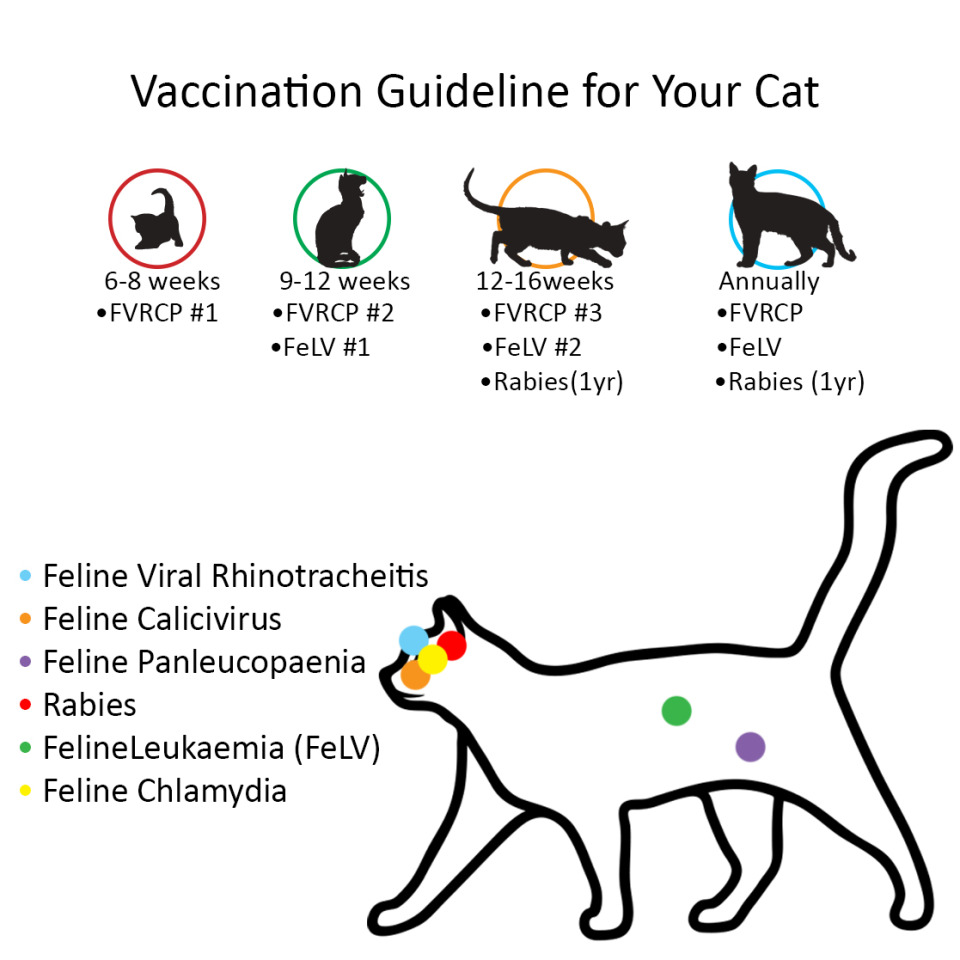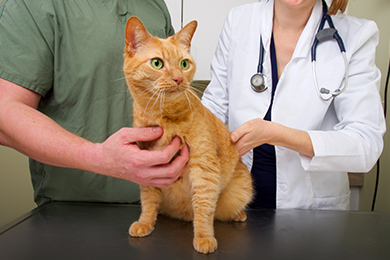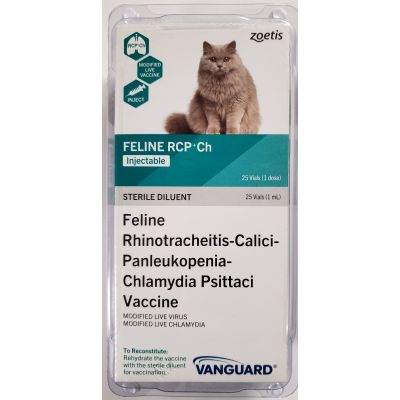chlamydia in cats vaccine
Felis reduces the severity of clinical signs in an infected cat but does not prevent infection or shedding of the organism into the environment. Kittens should start getting vaccinations when they are 6 to 8 weeks old until they are about 16 weeks old.
Transmission between companion parrots.
. Chlamydiosis refers to a bacteria based chronic respiratory infection caused by the Chlamydia psittaci bacterium. The safety profile of a new controlled-titer feline panleukopenia-rhinotracheitis-calicivirus-Chlamydia psittaci vaccine was compared to that of a currently-marketed vaccine. Then they must be boostered a year later.
Routine vaccination of pet cats is sometimes questioned usually on the basis that the disease caused by Chlamydophila felis is treatable and not life. What vaccines do cats typically receive. Controlled study of the efficacy of.
6 9 12 16 Weeks Panleukopenia distemper-Killed Rhinotracheitis Calicivirus. A stimulated immune system may lead to lethargy. Cats that have recurring Chlamydia infections might develop infertility over time.
The most common signs of chlamydia in cats involve the eyes or the upper respiratory tract nose or. Vaccines for feline herpes virus FHV-1 and feline calicivirus FCV are always combined as these two viruses together are the main causes of. UC Davis School of Veterinary Medicine.
Cats that have developed this infection will often. Different strains of Chlamydia felis and Chlamydia pneumoniae bacteria cause significant eye infections in cats. Feline chlamydophila disease refers to infection with a type of bacterium called Chlamydophila felisThis was formerly known as Chlamydia psitacci var felis.
A quality core vaccine shown to be effective for vaccination of healthy cats 9 weeks of age or older against feline rhinotracheitis calici panleukopenia and. The feline chlamydia vaccine is considered a non-core vaccine meaning it is an optional vaccine that cats may benefit from based on their risk for. Feline herpes virus and feline calicivirus.
There may be some soreness at the site of the stimulus which in the case of vaccines means the place where the shot went in. Experimental ocular infection of specific-pathogen-free cats with the feline pneumonitis strain of Chlamydia psittaci produced an acute severe conjunctivitis characterized by blepharospasm. Affected cats may experience sneezing eye and nasal discharge conjunctivitis lethargy loss of appetite sores on the gums and soft tissues of the oral cavity and lameness.
Although disease caused by Chlamydophila felis in cats has been referred to as feline pneumonitis Chlamydophila rarely causes pneumonia in cats. 8 10 12 Weeks. Immunity induced by vaccination is probably of.
Many different strains of. The most common signs of chlamydia in cats involve the eyes or the upper respiratory tract nose or throat and only when infection is not treated does it spread to the lungs. 8 12 Weeks Leukemia.
The disease in cats is also known as feline pneumonitis which can be. The most important ones are feline herpesvirus FHV-1 feline calicivirus FCV Chlamydia felis and. FVRCPP or FVRCPC This is one of the most common vaccines given and is a basic upper respiratory vaccine.
Feline Chlamydia felis Vaccine Chlamydia felis causes conjunctivitis in cats that generally responds readily to antimicrobial treatment. There are ways of ensuring that your cat never catches this disease from other animals. When to give vaccines.
Cat owners who administer their own feline vaccines save money and time while protecting the kitty from a variety of illnesses including panleukopenia rhinotracheitis calici viruses and. Chlamydial conjunctivitis in cats is an infection caused by a bacterial organism. Currently the recommendation for indooroutdoor cats is to administer the FVRCP vaccine annually.
Veterinarians routinely recommend certain vaccines for all cats called core vaccines whereas others are used more selectively according to the cats environment and lifestyle. Transmission of avian C psittaci strains to people may result in atypical pneumonia or even life-threatening acute illness ie psittacosis in people. For indoor-only cats the recommendation is to administer the vaccine every three.
It protects against Rhinotracheitis. Feline respiratory disease is caused by multiple agents.
Nobivac Feline 1 Hcpch Vaccine For Cats 25 Doses Jeffers Pet
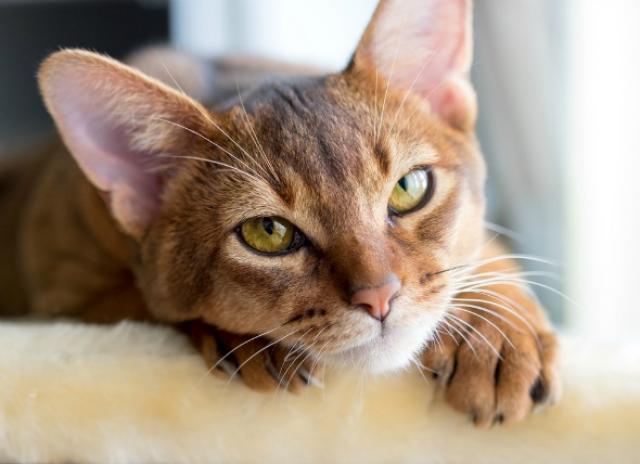
Upper Respiratory Infection Chlamydia In Cats Petmd
Nobivac Feline 1 Hcpch Felv Eclipse 4 Felv Revival Animal Health
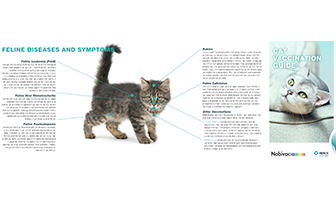
Feline Chlamydophila Disease Merck Animal Health Usa

Chlamydiosis In Cats Texas West Animal Health

Nobivac Feline 1 Hcpch 25x1 Dose Upco Pet Supplies
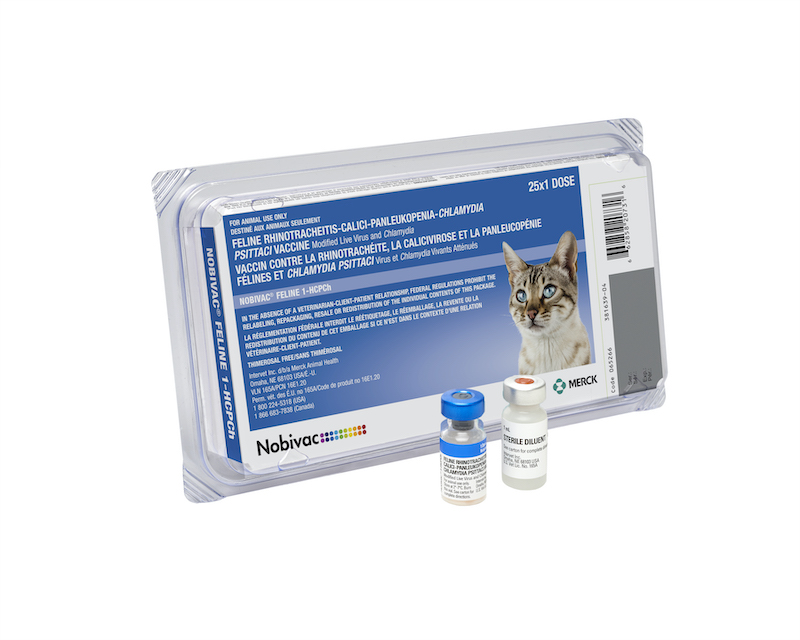
Feline Chlamydophila Disease Merck Animal Health Usa
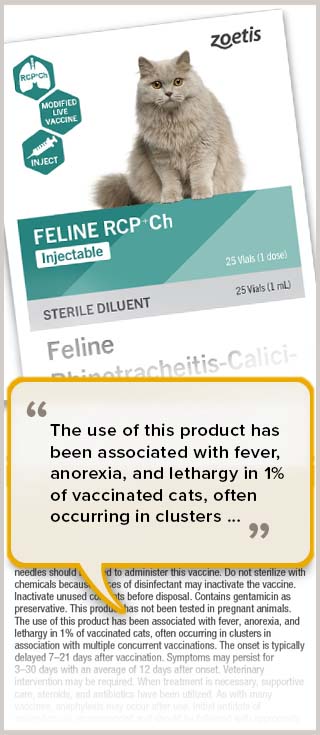
Clusters Of Suddenly Sick Cats Roil Some Veterinary Clinics News Vin
/adult-cat-vaccination-schedule-4846632_V4-ff36ccb34d74410d9652b4307a26e8b3.png)
What Is The Average Adult Cat Vaccination Schedule
Nobivac Feline 1 Hcpch Eclipse 4 Revival Animal Health

Purevax Feline 4 Rccp Vaccine For Cats Medi Vet
